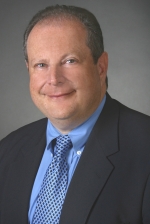 Michael Chez is the author of Autism and its Medical Management: A Guide for Parents and Professionals published by Jessica Kingsley Publishers. He has spent over 16 years practicing pediatric neurology with a special interest in clinical aspects of autism, and has published numerous articles on the subject and participated in many advisory panels on autism.
Michael Chez is the author of Autism and its Medical Management: A Guide for Parents and Professionals published by Jessica Kingsley Publishers. He has spent over 16 years practicing pediatric neurology with a special interest in clinical aspects of autism, and has published numerous articles on the subject and participated in many advisory panels on autism.
How did you first become involved in working with children with autism?
I first became interested in autism when I was a paediatric resident. At the time it was considered a relatively rare condition. Then, when I was completing my fellowship in paediatric epilepsy training I was working with children with language related epilepsies such as Landau-Kleffner Syndrome and was asked to see children who were more autistic than just aphasic with abnormal electroencephalograph (EEG) data findings. I became intrigued by how little was known about the relationship of epilepsy to autism. This solidified my interest in working with medical interventions and learning more about trying to medically treat subgroups of autism pharmacologically.
How has the field changed since you first began practicing?
I think the main difference is the transition of medical knowledge and awareness and also where once autism was considered rare (1:10,000 births when I began training) now it is, as of this week, 1:100 births in the United States. These are the biggest changes along with the increase of public and scientific community recognition of autism as a neurological disease. Where I once felt alone working as a neurologist in this field, I now have many colleagues working with me.
What, in your opinion, are the greatest challenges faced by children on the autism spectrum?
The greatest challenges faced by children with autism are communication and finding school or social programs that let them experience some of the simple joys that neurotypical children experience, such as making friends, going to birthday parties or camp, and most importantly gaining eventual independence as adults.
Autistic children also have more complicated medical issues, anxiety, and other stressors that they must overcome. I feel many of the higher functioning autistic children that I work with know they are different, yet cannot make the connection to adapt to changes as they grow, and can be left behind even if they want peer companionship. That is one of the most upsetting things I have to try and help children and families to manage.
How important is an early diagnosis?
Early diagnosis is critical for a number of reasons. First, it may allow earlier medical testing and diagnosis of problems such as gastrointestinal or sleep problems, and allow management of any neurological issues such as EEG abnormalities or seizures. Also, as we biologically learn more, genetic identification and perhaps immunological issues may have early medical treatment options in the near future. Data shows that a decent percentage of children identified before 18 to 24 months of age do better with intensive speech and behavioral intervention therapies.
Also, early identification allows parents to make social support and educational connections in their local region to promote optimal services to be obtained for their children.
What are your hopes for the future?
My hopes, as a neurologist in the field today, would be to maximize the quality of life for patients with the different subtypes of autism, with specific medical therapies being discovered based on the cutting edge genetic, cellular biology, and immune research that is now underway. I have great hope in scientific progress over the next 5 to 10 years.
Who or what has most inspired you?
I am most inspired by my own wife and my own daughters who have suffered from epilepsy, and one who has autism as well. I am always inspired by my patients and their families and how they cope and bravely make the best lives they can for themselves. I keep my desire to help alive by the strength and altruism of the people I have gotten to know through this work. I truly love my work and feel lucky to be asked to help in this incredible challenge of our age. This is truly the current frontier of pediatric medicine and I feel inspired daily by the new breakthroughs in the field.
Copyright © Jessica Kingsley Publishers 2009